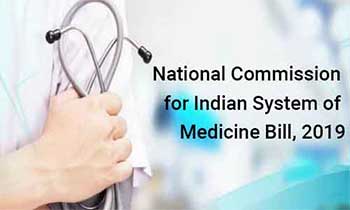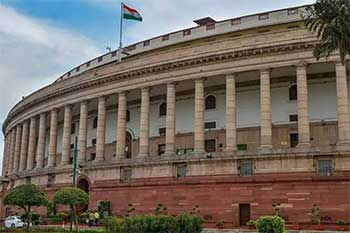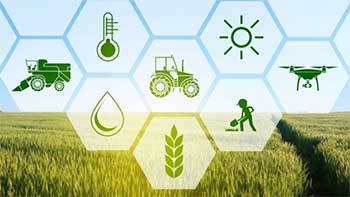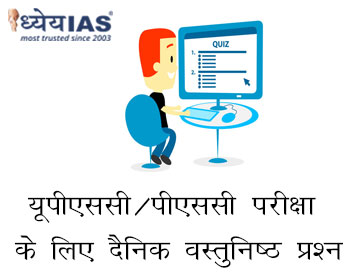Skyfall : Russia's Nuclear-powered Missile
IN NEWS
- Russia is reportedly developing a new type of nuclear-powered missile that could fly around the globe for years before delivering a tactical strike at any time.

Highlights
- The country is reportedly developing a new type of missile, called the '9M730 Burevestnik missile', that could fly around the globe for years.
- NATO reportedly nicknamed the missile as 'Skyfall.' It was reported that the missile was linked to the deaths of five scientists after an accident in Nyonoksa, in northeastern Russia, last year.
- According to reports, a senior intelligence official said that the missile could be ready to launch by 2025.
About
- While speaking at a news briefing, Britain’s Chief of Defence Intelligence, Lieutenant General Jim Hockenhull informed that Moscow is testing a subsonic nuclear- powered cruise missile system which has global reach and would allow an attack from unexpected directions.
- Meanwhile, the Russian President Vladimir Putin has reportedly described the missile as a weapon that is ‘radically new type of weaponry’ that has ‘unlimited range and unlimited ability to manoeuvre’.
- Hockenhull addressed the media briefing after he spoke at the Five Eyes intelligence hub at RAF Wyton in Cambridgeshire. Five Eyes is an intelligence alliance made up of boffins from the UK, USA, Australia, Canada and New Zealand.
Russia ‘can’t be underestimated’
- Russia has been investing in submarines and other underwater capabilities, including an unmanned craft that could be capable of delivering a nuclear payload to coastal targets, or even carrier groups at sea.
- It is believed that the submarine could also target undersea internet cables.
- Furthermore, despite Russia’s army is much smaller than it was during the Cold War, it can’t be underestimated as the country has completely changed its strategy with regards to warfare since then.
- The senior officials also mentioned that Iran and North Korea pose regional threats, but maintained that China presents the biggest realistic threat to stability around the globe
Homoeopathy Bill and National Commission for Indian System of Medicine Bill, 2020
Why in NEWS?
- Lok Sabha passes National Commission for Homoeopathy Bill and National Commission for Indian System of Medicine Bill 2020 on September 14th 2020.

Background
- Both these bills were passed by the Rajya Sabha on 19th March this year during the Budget Session.
- The bills will now be sent to the President for his assent.
- The bills aim at ensuring the availability of high-quality medical professionals both for homoeopathic treatment as well as for the Indian System of Medicine.
The National Commission for Homoeopathy Bill, 2020
- It seeks to repeal the Homoeopathy Central Council Act, 1973 and to set up a National Commission for Homoeopathy.
- The Commission for Homoeopathy will consist of 20 members which will include a Chairperson, the President of the Homoeopathy Education Board, the Director- General of National Institute of Homoeopathy, the President of the Medical Assessment and Rating Board for Homoeopathy in addition to other members.
The National Commission for Indian System of Medicine Bill, 2020
- It seeks to repeal the Indian Medicine Central Council Act, 1970 and set up a National Commission for Indian System of Medicine.
- The Commission will consist of 29 members including a Chairperson, the President of the Board of Ayurveda, President of the Board of Unani, Siddha, and Sowa-Rigpa, in addition to other members.
Other features of Both Bills
- The two bills also propose a constitution of Advisory Councils for Homoeopathy as well as for Indian System of Medicine.
- These Councils will be the primary platform through which the states and union territories will put forth their views and concerns before the two Commissions.
- The Advisory Councils will also suggest measures to the Commission to determine and maintain standards of medical education in the country.
- The bills also envisage a National Eligibility-cum-Entrance Test for admission to both undergraduate and Post-Graduate courses of Homoeopathy and various disciplines of Indian System of Medicine.
Banking Regulation (Amendment) Bill in Lok Sabha
IN NEWS
- Finance minister Nirmala Sitharaman introduced Banking Regulation (Amendment) Bill, 2020 in the Lok Sabha.

ABOUT
- The earlier ‘Banking Regulation (Amendment) Bill 2020’ (No56 of 2020), introduced in March 2020, has been withdrawn and a new Bill (No 114 of 2020) has been introduced.
- In June 2020, President Ram Nath Kovind had promulgated the Banking Regulation (Amendment) Ordinance 2020, to ensure better management and sound regulation of cooperative banks; and facilitate making of reconstruction/ amalgamation scheme in the interest of depositors.
- According to the bill, the central bank’s banking regulations will be applicable to cooperative banks as well, which is expected to enhance the oversight of the co-operative banking sector which has seen many scandals in the past. Cooperative banks have been under the dual control of cooperative societies as well as RBI.
- However, the changes will not affect the existing powers of the state registrars of co-operative societies under state laws. Nor will the changes apply to primary farm credit societies or cooperative societies, the main business of which is long-term finance for agricultural development.
- With the amendment, cooperative banks will be allowed to raise money via public issue and private placement, of equity or preference shares as well as unsecured debentures, with the central’s bank’s nod. Currently, access to capital for cooperative banks is limited.
WHY BROUGHT
- The government’s move follows the collapse of PMC Bank, which had allegedly created fictitious accounts to hide over ₹4,355 crore of loans extended to the now bankrupt Housing Development and Infrastructure Ltd (HDIL). The fraud, which was discovered by RBI in September, 2019 trapped millions of depositors.
CONCLUSION
- As the economic situation arising from the covid-19 pandemic had increased the stress in both co-operative banks and banking companies, there was an immediate need for legislation in this regard.
- As Parliament was not in session, the Banking Regulation (Amendment) Ordinance, 2020 was promulgated by the President of India.
- The Banking Regulation (Amendment) Bill, 2020 seeks to replace the Banking Regulation (Amendment) Ordinance, 2020.
Bills for Transformation of Agriculture and Raising Farmers’ Income
IN NEWS
- The government has introduced three bills aimed at the transformation of agriculture in the country and raising farmers’ income in Lok Sabha today to replace ordinances promulgated on 5 June 2020.
- The Farmers' Produce Trade and Commerce (Promotion and Facilitation) Bill, 2020
- The Farmers (Empowerment and Protection) Agreement of Price Assurance and Farm Services Bill, 2020
- The Essential Commodities (Amendment) Bill, 2020

ABOUT
- The Farmers' Produce Trade and Commerce (Promotion and Facilitation) Bill, 2020 seeks to provide for the creation of an ecosystem where the farmers and traders enjoy the freedom of choice relating to the sale and purchase of farmers' produce which facilitates remunerative prices through competitive alternative trading.
- Farmers in India suffered from various restrictions in marketing their produce. There were restrictions for farmers in selling agri-produce outside the notified APMC market yards. The farmers were also restricted to sell the produce only to registered licensees of the State Governments.
- The Farmers (Empowerment and Protection) Agreement of Price Assurance and Farm Services Bill, 2020 seeks to provide for a national framework on farming agreements that protects and empowers farmers to engage with agri- business firms, processors, wholesalers, exporters or large retailers for farm services and sale of future farming produce at a mutually agreed remunerative price framework in a fair and transparent manner and for matters connected therewith or incidental thereto.
- Indian agriculture is characterized by fragmentation due to smallholding sizes and has certain weaknesses such as weather dependence, production uncertainties, and market unpredictability. This makes agriculture risky and inefficient in respect of both input & output management.
- The Essential Commodities (Amendment) Bill, 2020 seeks to remove commodities like cereals, pulses, oilseeds, edible oils, onion and potatoes from the list of essential commodities. This will remove fears of private investors of excessive regulatory interference in their business operations. The freedom to produce, hold, move, distribute, and supply will lead to the harnessing of economies of scale and attract private sector/foreign direct investment into the agriculture sector.
- While India has become surplus in most agri-commodities, farmers have been unable to get better prices due to lack of investment in cold storage, warehouses, processing and export as the entrepreneurial spirit gets dampened due to Essential Commodities Act. Farmers suffer huge losses when there are bumper harvests, especially of perishable commodities.
CONCLUSION
- This legislation is a historic-step in unlocking the vastly regulated agriculture markets in the country. It will open more choices for the farmer, reduce marketing costs for the farmers and help them in getting better prices.
- This legislation will transfer the risk of market unpredictability from the farmer to the sponsor and also enable the farmer to access modern technology and better inputs. It will reduce the cost of marketing and improve the income of farmers
- The legislation will help drive up investment in cold storages and modernization of the food supply chain. It will help both farmers and consumers while bringing in price stability. It will create a competitive market environment and also prevent wastage of agri-produce that happens due to lack of storage facilities.







